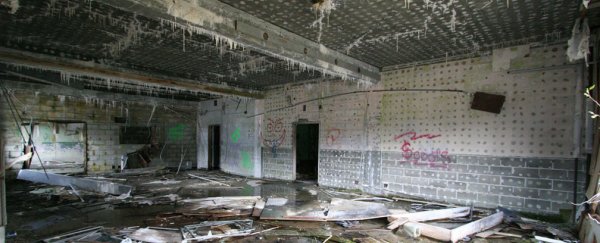One of the most chilling facts about asbestos is that harmful exposure to the dangerous substance can take decades to reveal itself, at which point conventional cancer treatments such as chemotherapy offer little hope to terminal patients.
However, a new treatment developed by scientists at the University of Technology, Sydney in Australia has been shown to arrest the development of mesothelioma tumours, the cancer caused by asbestos exposure, in 60–80 percent of cases.
Mesothelioma is an aggressive, incurable cancer that occurs after asbestos fibres become lodged in our lungs. The disease can take 20–50 years to present itself, at which point most patients sadly don't have very long to live. The average lifespan after a diagnosis of mesothelioma is nine months, with chemotherapy only giving patients an extra three months in most cases.
The new compound discovered by UTS researchers could offer a lifeline to those at risk. The reason asbestos is so dangerous is because lodged fibres can cause cells to die off by suppressing the operation of our immune system. The new treatment overcomes this mechanism at a genetic level, giving our natural defences a chance to start fighting back against the fibres.
That's the theory anyhow, but how effective is it? Well, it's had an impressive run in pre-clinical lab trials so far. With testing on mice exposed to asbestos, the compound stopped the development of mesothelioma tumours in 60–80 per cent of cases. The researchers are currently applying for a patent and are looking to bring on board a pharmaceutical manufacturer, with hopes a treatment could be available on the market within five years.
"We think the compound could be used through a puffer or a nebuliser, just like those used with asthma, where it could either prevent the fibres taking hold in people exposed to asbestos, or improve the condition for people suffering now," said Tony George, one of the researchers, in an announcement of the results.
The discovery of the compound is particularly important now. While mesothelioma in Australia has historically been tied to industrial labour such as mining and manufacturing, a new wave of cases is afflicting DIY renovators who have been exposed to asbestos fibres while upgrading their homes.
With 700 people dying from mesothelioma or asbestosis in Australia annually and figures showing the disease still hasn't peaked, this much-needed treatment can't come soon enough.
Love science? Find out more about the innovative research happening at UTS Science.
